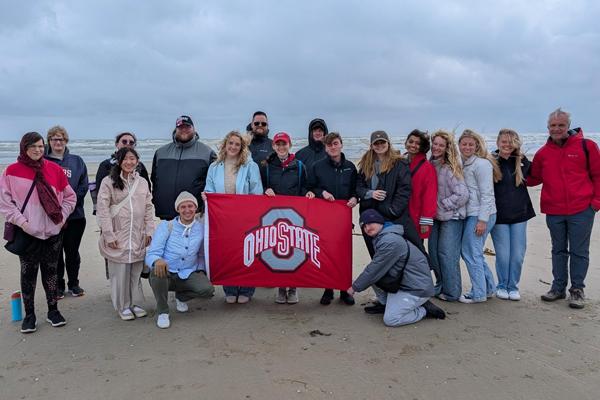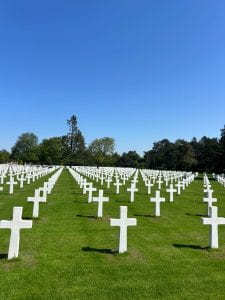Transnational History of WWII Program Students Share News

While on the travel portion of the Transnational History of WWII Program, students have been blogging about their experiences.

(Photo by Julianna Logan)
Julianna Logan posts: "During my visits to the Commonwealth Military Cemetery in Bayeux and the American Cemetery in Normandy, I was struck by the contrasting approaches to commemorating fallen soldiers. France, a key battleground during WWII, especially on D-Day, became the final resting place for thousands of Allied troops from countries including the United States, Canada, England, France, Poland, and more. With so many lives lost on foreign soil, part of the post-war conversation was how to honor all the soldiers who lost their lives abroad. Officials contemplated whether to leave them where they perished, rebury them in a cemetery in France, or transport them back to their home country. England and America decided to establish national cemeteries in France, but went about it differently."
Luke Guzy writes: "The first was the British and Commonwealth cemetery, which had the most significant emotional impact on me, as there were personal messages on almost every grave. Reading the messages the families left for their boys who died overseas was very hard for me because many of these men were my age, and they missed the freedom we enjoy due to their sacrifice. The Polish servicemen buried in this cemetery were especially difficult for me to view as my family immigrated from Poland, including my cousin Benard who, like these men, left Poland to fight the Nazis. When I saw their graves, it made me think back to the stories I heard from Benard about leaving Poland after Hitler invaded, without a future for their own lives and their country. These brave men still fought evil and for a future where Poland could be free."
